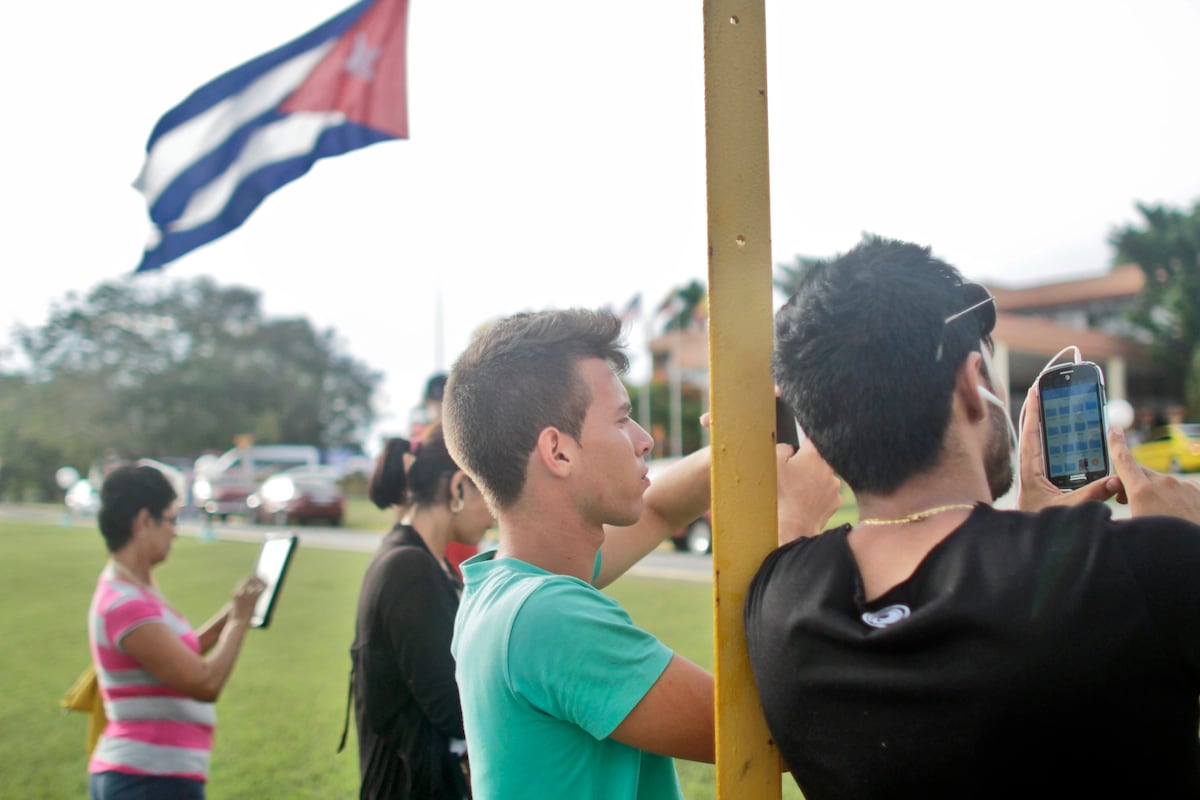Private Cuban businesses will now have an easier time accessing internet and banking services in the United States. The U.S. Treasury Department has relaxed some of the restrictions imposed on the island in a bid to “promote internet freedom in Cuba, support independent Cuban private sector entrepreneurs, and expand access to certain financial services for the Cuban people,” according to a statement released on Tuesday.
With the new measures, Cuban citizens will be allowed to “open, maintain, and remotely use U.S. bank accounts, including through online payment platforms,” even if they reside on the island or in another country. Under the current restrictions, Cubans were only allowed to open and operate accounts while residing in the United States.
In addition, the U.S. has reinstated authorization for “U-turn” transactions — funds that originate and terminate outside the United States — which were prohibited in September 2019. According to the Treasury, the objective of reinstating these transactions is to help the Cuban people, including independent entrepreneurs in the private sector, by facilitating remittances and payments for transactions.
The U.S. has also replaced the term “self-employed individual” with “independent private sector entrepreneur,” which will apply to owners of companies and cooperatives with fewer than 100 employees. The U.S. Treasury argues this “better reflects Cuba’s non-state sector,” as the Cuban government authorized the establishment of small and medium-sized non-state companies in 2021. Companies related to the Cuban government or the Communist Party prohibited in the United States are excluded. According to the U.S. administration, 11,000 companies will be able to benefit from the new regulations.
Internet access
Regarding the internet, the new measures will allow greater access to the service, including authorization for social media platforms, video conferencing, simultaneous translation services, online games and authentication services. Companies under U.S. jurisdiction may offer data storage services.
In addition, Cuban companies will be able to export their software and cellphone applications to other countries from the United States, which will allow them to offer their products in global online stores.
The new Treasury rules come two years after the Joe Biden administration announced its plan to approve measures that would boost the island’s economy and benefit small and medium-sized Cuban entrepreneurs. Among other measures, in May 2022 it lifted the established limit of $1,000 per quarter for remittances sent to the island. In addition, the Cuban Family Reunification Parole Program was reestablished, increasing consular and visa services for Cubans who want to join their relatives in the United States.
The embargo that the island has been under since 1962 was again rejected last November by the U.N. General Assembly. By an overwhelming majority of 187 votes in favor, two against — cast by the United States and Israel —, and one abstention, from Ukraine, the U.N. backed a resolution calling on the United States to end the blockade, which has fueled Cuba’s economic crisis. It was the 30th time the resolution had been approved, and had two more votes in favor in 2023 than the previous year.
Year after year, since 1992, the highest deliberative body of the United Nations has asked the United States to lift the economic and trade embargo, which Cuban Foreign Minister Bruno Rodríguez Padilla has described as an “act of war in times of peace.”
According to data from the Cuban government of Miguel Díaz-Canel, the U.S. embargo costs the island $405 million a month. In Cuba, however, the people also blame the Cuban government for the difficult economic situation and their lack of freedoms. In March, there were protests in several cities due to the food shortages and power outages.
Sign up for our weekly newsletter to get more English-language news coverage from EL PAÍS USA Edition

Tyler Fields is your internet guru, delving into the latest trends, developments, and issues shaping the online world. With a focus on internet culture, cybersecurity, and emerging technologies, Tyler keeps readers informed about the dynamic landscape of the internet and its impact on our digital lives.


